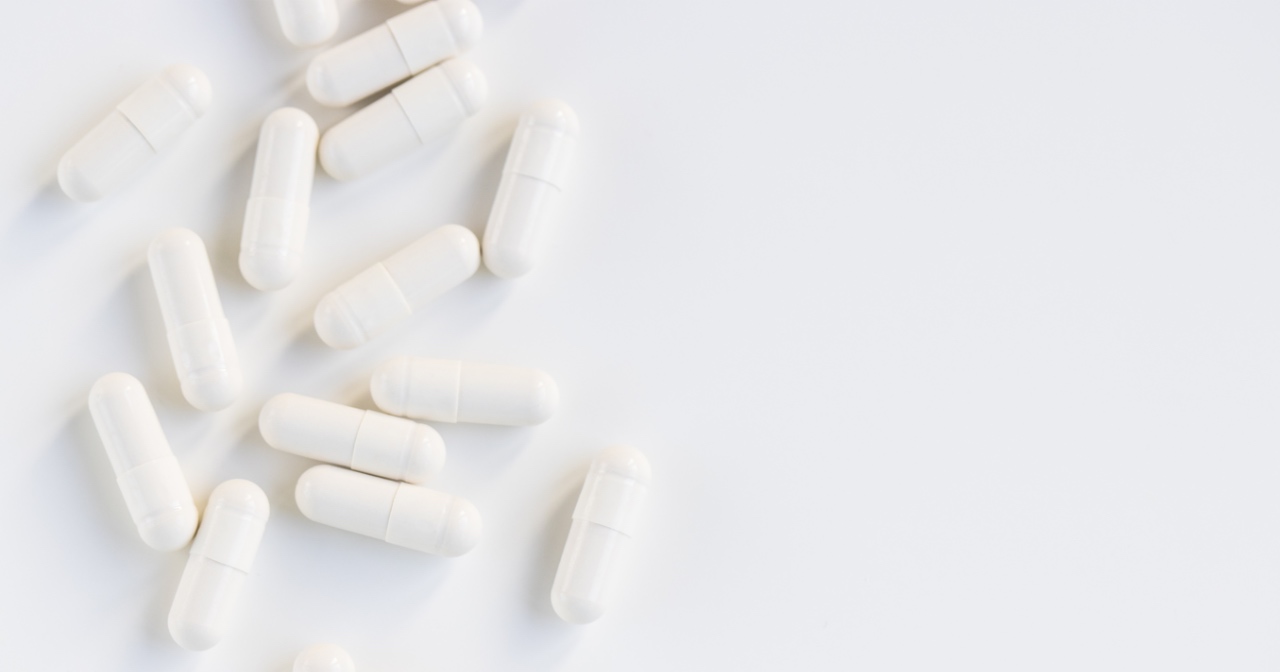Listen on: Apple Podcasts | Spotify
L-arginine is a semi-essential amino acid that increases nitric oxide levels. Nitric oxide plays a crucial role in vascular function, which means low arginine levels leads to cardiovascular problems, erectile dysfunction, and reduced physical performance.
Not surprisingly, arginine levels also affect how you respond to a COVID-19 infection.
While you do consume some arginine through your diet, you’d likely benefit from supplementing with it, or with citrulline.
In this blog post, I’ll review arginine’s health benefits and explain why supplementing with it along with citrulline is the best way to improve blood levels and gain the health, fitness, and performance benefits it offers.

Feel Better Fast. Guaranteed.
Energy+, EDGE, and MentaBiotics make up the Happy Juice supplement stack, with ingredients clinically proven to:
- decrease anxiousness scores by 55%
- decrease irritability scores by 60%
- decrease fatigue by 64%
- decrease anger 54%
- decrease tension by 45%
- decrease confusion by 43%
- decrease overall distress by 49%
- increase good bacteria by 70%
- decrease negative mood by 105%
- increase positive mood by 211%
What are arginine and citrulline?
L-arginine is a semi-essential amino acid synthesized from proline, glutamate, and glutamine.
It is essential for endothelial cell nitric oxide (NO) production. Endothelial cells line your blood vessels and NO levels determine the tone of and contractility of the vessels.
Low NO levels lead to more rigid vessels. The more rigid the blood vessels, the higher your blood pressure and greater your risk of blood vessel damage and cardiovascular disease.
Nitric oxide increases blood flow and enhances muscle contraction, gas exchange, and mitochondrial biogenesis (growth of mitochondria).
Arginine also aids in creatine resynthesis and reduces lactate accumulation.
The average adult consumes 4-5 grams per day, mainly from meat, dairy, nuts, and seeds. Your kidneys synthesize another 2 grams from citrulline each day.
One of the drawbacks of arginine supplementation is that it isn’t completely absorbed into the bloodstream. The enzyme arginase metabolizes arginine. It’s found in the gut lining and liver, so some arginine that reaches either location may be metabolized before it can reach the bloodstream.
L-citrulline is an arginine precursor and is not metabolized in the gut or liver. Instead, it can pass into the bloodstream intact, where it contributes to the formation of l-arginine.
Research shows you can increase arginine levels in the blood through arginine or citrulline supplementation, but it’s probably ideal to take both.
One study showed l-citrulline supplementation at a dose of 750 mg, twice daily, significantly increased blood levels of l-arginine, though taking 3 grams of l-citrulline twice daily increased levels much more.
Another study showed both arginine and citrulline increased blood levels of arginine, but you’d only need to take half as much citrulline as you’d take arginine to to reach the same blood level.
That said, it seems that combining the two is more effective than taking either individually. A 2017 study showed that taking 1 gram of each together increased blood levels of arginine more than taking 2 grams of either one individually.
I should also mention that there’s more research using arginine than citrulline, which is what you might notice throughout the rest of this article.
Health Benefits
Increasing blood levels of arginine improves blood flow, prevents damage to blood vessels, stimulates hormone secretion, and enhances creatine synthesis. These effects lead to numerous health benefit, many of which I’ve summarized below.
Athletic Performance
Arginine increases blood flow throughout the body, which delivers oxygen and nutrients to working muscles and lactate and waste products away from them.
It also stimulates release of growth hormone and insulin-like growth factor 1 (IGF-1). Both hormones impact muscle growth and repair and growth hormone enhances fat metabolism.
At single doses of 5-9 grams, arginine can double resting growth hormone levels.
Exercise is the most effective way to increase growth hormone, and studies show that arginine supplementation prior to strength training may reduce the rise in growth hormone from exercise alone.
For supporting growth hormone, it’s probably best to supplement with arginine outside of your workout window. Since you produce higher levels of growth hormone during sleep, it would make sense to take it before bedtime when your goal is maximal GH secretion.
Arginine supplementation reduces ammonia, lactate, fatty acid, and fat oxidation levels after exercise and increases carbohydrate oxidation and oxygen efficiency.
Research shows both aerobic and anaerobic athletes benefit from supplementation, though the research more consistently shows improvement for anaerobic performance.
Arginine supplementation helps you do more work in the same amount of time. That could mean you handle a larger training load when strength training or you cover a greater distance during aerobic exercise.
It also aids in creatine resynthesis, which improves muscle strength and power.
Anaerobic athletes or strength athletes benefit most at daily doses of 0.15 g/kg bodyweight (12.5 grams for a 185 pound person like me) 60-90 minutes before exercise, or when taken consistently, long term, daily divided doses totaling 10-12 grams. At these amounts, you should see an improvement in strength (1RM), power, sprint time trials, and related physical performance measures.
Some research shows aerobic athletes experience performance benefits at similar doses, though studies have been less consistent in showing ergogenic effects for aerobic exercise.
Cardiovascular Health
Arginine directly impacts the endothelial cell’s ability to produce nitric oxide, which helps maintain healthy blood vessel function. When blood vessels become rigid, they don’t dilate properly, which increases blood pressure.
Elevated blood pressure causes vascular damage and free radical production, leading to atherosclerosis, which increases heart attack and stroke risk.
After two weeks of taking just 1 gram of l-citrulline three times per day, patients with high blood pressure improved blood pressure levels and the distance they could walk in a 6-minute walking test.
Another study showed that l-arginine supplementation improved the effects of transdermal nitroglycerin, which shows it may be helpful for people who suffer with angina (chest pain).
A 2019 meta-analysis showed arginine supplementation improves triglyceride levels, but does not have a consistent, positive impact on cholesterol.
There is also evidence that arginine may be therapeutically useful in some life-threatening inherited diseases in children that are accompanied by cardiovascular complications. Mitochondrial encephalomyopathy, lactic acidosis, and stroke-like episodes (MELAS) syndrome, a progressively fatal mitochondrial disease, is caused by genetic mutations in the mitochondrial DNA.
Rashid J, et al.
Doctors often recommend l-arginine supplementation for:
- elevated lipid levels
- coronary artery disease
- congestive heart failure
- peripheral arterial disease
- sickle cell disease
- erectile dysfunction
You might be surprised to see that last item on the list in a section about cardiovascular function. However, erectile dysfunction is one of the earliest signs of heart disease.
Unfortunately, most men look for ways to boost testosterone when they can’t get or keep it up. Your ability to maintain an erection depends on healthy blood vessels just as much, if not more than your level of testosterone.
As a recent meta-analysis showed…
The results of our systematic review and meta-analysis provide evidence on the effectiveness of arginine supplements for mild to moderate ED (erectile dysfunction).
Rhim HC, et al.
Immune Function and COVID-19
Arginine plays an important role in immune system regulation.
An appropriate supply of arginine has long been associated with the improvement of immune responses. In addition to being a building block for protein synthesis, arginine serves as a substrate for distinct metabolic pathways that profoundly affect immune cell biology; especially macrophage, dendritic cell and T cell immunobiology.
Martí I Líndez, et al.
Arginine deficiency compromises immune function in adults, children, and even in babies.
Due to deficiency in this amino acid, preterm newborns often develop bacterial infections.
L-arginine could be a valuable prophylactic as well as an important natural treatment for certain diseases, including COVID-19.
A meta-analysis showed that people who supplemented with l-arginine had a much better T cell immune response and that they were much less likely to develop infections. Arginine deficiency reduces T cell proliferation and compromises T-cell mediated memory.
As I explained in Science Fiction and COVID: They’re Lying To You For Their Own Good., COVID-19 is a vascular disease.
Clinical studies show that arginine levels are low in COVID-19 infected adults and children. The low levels contribute to endothelial dysfunction and compromise the immune system’s T-cell function.
Not surprisingly, those at highest risk of severe infection include people with cardiovascular disease. Arginine supplementation, as I already explained, slows the progression vascular damage, so it shouldn’t be a surprise that supplementation also helps with COVID-19 infection.
Unfortunately, this insight was ignored at the beginning of the COVID Circus. Instead, research papers suggested that arginine depletion could help in COVID-19 treatment.
For example, this comes from the International Journal of Infectious Disease,
One therapeutic approach that remains to be clinically investigated is disruption of the host-virus relationship through amino acid restriction, a strategy used successfully in the setting of cancer treatment. Arginine is an amino acid that has been shown in nonclinical studies to be essential in the life cycle of many viruses. Therefore, arginine depletion may be an effective therapeutic approach against SARS-CoV-2.
Grimes JM, et al.
That paper was published in January, 2021. The recommendations were based on assumptions, not on evidence from treating COVID-19 patients.
Contrast that with an actual study published in October, 2021 in The Lancet.
the results of this interim analysis indicate that adding L-arginine to standard therapy in patients with severe COVID-19 significantly decreases the length of hospitalization and reduces the respiratory support assessed 10, but not 20, days after starting the treatment.
Fiorentino G, et al.
The study included patients who developed severe cases of COVID-19 and included arginine as part of their treatment plan.
The researchers looked at two outcomes following supplementation:
- Length of stay in hospital, which was significantly shortened in the arginine group
- Need for respiratory support for hospitalized patients, which was significantly different at the 10 day period but not the 20 day
Before you jump to the conclusion that supplementation didn’t help get people off ventilators, consider this from the researchers:
At day 20 after randomization, we did not detect any significant difference in the rate of patients that transitioned to a lower respiratory support; however a nearly twice the number of participants in the L-arginine arm had been already discharged from the hospital by this time, leaving only a small number of patients remaining-likely the sickest patients of the cohort; therefore, we can speculate that many of the patients with earlier discharge would have demonstrated improvements had they been analyzed at day 20.
Fiorentino G, et al.
Basically, by day 20 there weren’t many patients left in the hospital from the arginine group. They’d already gone home. So, the few that remained were still getting respiratory support like most of those who never got the supplement. But, if you compared the entire group, including those who’d already been discharged, the difference in respiratory support was significantly different in the treatment group.
To summarize the impact of arginine on COVID-19:
There is a strong rationale indicating a beneficial effect of L-Arginine in COVID-19, and preliminary results from a randomized clinical trial seem to support this view.
Adebayo A, et al.
Whether it’s COVID-19, or another viral or bacterial infection, strong evidence shows that higher arginine levels can help people recover faster.
Because it’s an inexpensive dietary supplement, you probably won’t hear much about it from Mainstream Media, but the research is there for those willing to look.
Wound Healing
Researchers have studied arginine’s effect on wound healing since the 1970s.
Animal research shows it supports healing of skin wounds, fractures, diabetic wounds, and even after hemorrhage or trauma.
Had I known more about it, I would have used it or citrulline as part of my recovery from a distal bicep tendon rupture.
Pregnancy
Raising arginine levels may provide some health benefits for pregnant women.
L-arginine is involved in multiple pathways that contribute to healthy placental and fetal function and development.
Weckman AM, et al.
Arginine helps improve vascularization of the placenta as well as protect the mother’s vascular health.
However, arginine is used up at much higher rates during pregnancy, so it’s common for women to become deficient. Consuming meat, dairy products, nuts, and seeds helps close the arginine gap, but supplementation may be necessary, if not beneficial.
Arginine supplementation at doses of 3-6.6 grams per day, started early in pregnancy, helped women at risk of pre-eclampsia maintain healthier blood pressure and improved outcomes for both mother and baby.
Two studies had pregnant women take 4 grams per day of arginine. They experienced better blood pressure and pregnancy outcomes.
Based on its wound-healing abilities, it may also speed up recovery following cesarean section.
Recommended Doses
For general health benefits, the research shows divided daily doses totalling 3-4 grams of arginine is probably sufficient. At this level, it would be a relatively inexpensive supplement to add to your Foundational 5.
You could also use a lower amount of citrulline, or take a supplement that combines the two. As I mentioned above, the two may act synergistically.
Several of the practitioner brand options available through my Wellevate dispensary combine the two amino acids.
For athletic performance, though, you’ll need to take much higher doses. When taking it consistently, long-term, 10-12 grams per day is ideal. However, if you haven’t been taking it very long, and need an ergogenic edge, consuming 0.15 g/kg bodyweight, 60-90 minutes before training or competition, should provide an edge.
One word of warning, though: I never recommend taking a new, high-dose supplement for the first time, just before an important event. Take it at least once before the event to make sure it doesn’t negatively affect your stomach. I’d hate to have you maxing out on squats when a bad case of diarrhea causes you to soil your shorts.
Summary
Arginine and citrulline clearly provide a variety of health benefits. As compelling as they may be, I have to repeat this statement again:
No supplement is so good it offsets a poor diet. No diet is so good that it can’t benefit from supplementation.
Before adding either supplement to your nutrition plan, make sure you’re already eating a healthy, high-protein diet, strength training regularly, and getting enough sleep.

Feel Better Fast. Guaranteed.
Energy+, EDGE, and MentaBiotics make up the Happy Juice supplement stack, with ingredients clinically proven to:
- decrease anxiousness scores by 55%
- decrease irritability scores by 60%
- decrease fatigue by 64%
- decrease anger 54%
- decrease tension by 45%
- decrease confusion by 43%
- decrease overall distress by 49%
- increase good bacteria by 70%
- decrease negative mood by 105%
- increase positive mood by 211%
References
Alexander, J. Wesley, and Dorothy M. Supp. “Role of Arginine and Omega-3 Fatty Acids in Wound Healing and Infection.” Advances in Wound Care, vol. 3, no. 11, Mary Ann Liebert, Inc., Nov. 2014, p. 682. www.ncbi.nlm.nih.gov, https://doi.org/10.1089/wound.2013.0469.
Badurdeen, Shiraz, et al. “Arginine Depletion Increases Susceptibility to Serious Infections in Preterm Newborns.” Pediatric Research, vol. 77, no. 2, Feb. 2015, pp. 290–97. www.nature.com, https://doi.org/10.1038/pr.2014.177.
Barbul, A., et al. “Arginine: A Thymotropic and Wound-Healing Promoting Agent.” Surgical Forum, vol. 28, 1977, pp. 101–03. Benza, Raymond L., et al. “An Evaluation of Long-Term Survival from Time of Diagnosis in Pulmonary Arterial Hypertension from the REVEAL Registry.” Chest, vol. 142, no. 2, Aug. 2012, pp. 448–56. PubMed, https://doi.org/10.1378/chest.11-1460.
Böger, R. H., and S. M. Bode-Böger. “The Clinical Pharmacology of L-Arginine.” Annual Review of Pharmacology and Toxicology, vol. 41, 2001, pp. 79–99. PubMed, https://doi.org/10.1146/annurev.pharmtox.41.1.79.
Fiorentino, Giuseppe, et al. “Effects of Adding L-Arginine Orally to Standard Therapy in Patients with COVID-19: A Randomized, Double-Blind, Placebo-Controlled, Parallel-Group Trial. Results of the First Interim Analysis.” EClinicalMedicine, vol. 40, Elsevier, Oct. 2021. www.thelancet.com, https://doi.org/10.1016/j.eclinm.2021.101125.
Grimes, Joseph M., et al. “Arginine Depletion as a Therapeutic Approach for Patients with COVID-19.” International Journal of Infectious Diseases, vol. 102, Jan. 2021, pp. 566–70. ScienceDirect, https://doi.org/10.1016/j.ijid.2020.10.100.
Hadi, Amir, et al. “The Effect of L-Arginine Supplementation on Lipid Profile: A Systematic Review and Meta-Analysis of Randomised Controlled Trials.” The British Journal of Nutrition, vol. 122, no. 9, Nov. 2019, pp. 1021–32. PubMed, https://doi.org/10.1017/S0007114519001855.
Hicks-Roof, Kristen. “The Use of an Arginine-Enriched Oral Nutrition Supplement to Enhance Wound Healing from a Cesarean Section.” Case Reports in Clinical Nutrition, vol. 1, no. 1–3, Karger Publishers, 2018, pp. 1–7. www.karger.com, https://doi.org/10.1159/000494666.
Kanaley, Jill A. “Growth Hormone, Arginine and Exercise.” Current Opinion in Clinical Nutrition and Metabolic Care, vol. 11, no. 1, Jan. 2008, pp. 50–54. PubMed, https://doi.org/10.1097/MCO.0b013e3282f2b0ad.
Kdolsky, Richard K., et al. “The Influence of Oral L-Arginine on Fracture Healing: An Animal Study.” Wiener Klinische Wochenschrift, vol. 117, no. 19–20, Oct. 2005, pp. 693–701. PubMed, https://doi.org/10.1007/s00508-005-0431-y.
Martí i Líndez, Adrià-Arnau, and Walter Reith. “Arginine-Dependent Immune Responses.” Cellular and Molecular Life Sciences, vol. 78, no. 13, July 2021, pp. 5303–24. Springer Link, https://doi.org/10.1007/s00018-021-03828-4.
Mm, Kai Kang, et al. Effect of L-Arginine on Immune Function: A Meta-Analysis. p. 9. Morris, Sidney M. “Arginine: Beyond Protein.” The American Journal of Clinical Nutrition, vol. 83, no. 2, Feb. 2006, pp. 508S-512S. PubMed, https://doi.org/10.1093/ajcn/83.2.508S.
Neri, Isabella, et al. “L-Arginine Supplementation in Women with Chronic Hypertension: Impact on Blood Pressure and Maternal and Neonatal Complications.” The Journal of Maternal-Fetal & Neonatal Medicine: The Official Journal of the European Association of Perinatal Medicine, the Federation of Asia and Oceania Perinatal Societies, the International Society of Perinatal Obstetricians, vol. 23, no. 12, Dec. 2010, pp. 1456–60. PubMed, https://doi.org/10.3109/14767051003677962.
Rees, Chris A., et al. “Altered Amino Acid Profile in Patients with SARS-CoV-2 Infection.” Proceedings of the National Academy of Sciences, vol. 118, no. 25, National Academy of Sciences, June 2021. www.pnas.org, https://doi.org/10.1073/pnas.2101708118.
Reizine, Florian, et al. “SARS-CoV-2-Induced ARDS Associates with MDSC Expansion, Lymphocyte Dysfunction, and Arginine Shortage.” Journal of Clinical Immunology, Nature Publishing Group, p. 1. www.ncbi.nlm.nih.gov, https://doi.org/10.1007/s10875-020-00920-5.
Rashid, Jahidur, et al. “Therapeutic Potential of Citrulline as an Arginine Supplement: A Clinical Pharmacology Review.” Paediatric Drugs, vol. 22, no. 3, June 2020, pp. 279–93. PubMed, https://doi.org/10.1007/s40272-020-00384-5.
Rhim, Hye Chang, et al. “The Potential Role of Arginine Supplements on Erectile Dysfunction: A Systemic Review and Meta-Analysis.” The Journal of Sexual Medicine, vol. 16, no. 2, Feb. 2019, pp. 223–34. PubMed, https://doi.org/10.1016/j.jsxm.2018.12.002.
Schaefer, A., et al. “L-Arginine Reduces Exercise-Induced Increase in Plasma Lactate and Ammonia.” International Journal of Sports Medicine, vol. 23, no. 6, Aug. 2002, pp. 403–07. PubMed, https://doi.org/10.1055/s-2002-33743.
Schneider, Kara L., and Najat Yahia. “Effectiveness of Arginine Supplementation on Wound Healing in Older Adults in Acute and Chronic Settings: A Systematic Review.” Advances in Skin & Wound Care, vol. 32, no. 10, Oct. 2019, pp. 457–62. PubMed, https://doi.org/10.1097/01.ASW.0000579700.20404.56.
Schwedhelm, Edzard, et al. “Pharmacokinetic and Pharmacodynamic Properties of Oral L-Citrulline and L-Arginine: Impact on Nitric Oxide Metabolism.” British Journal of Clinical Pharmacology, vol. 65, no. 1, Jan. 2008, pp. 51–59. PubMed, https://doi.org/10.1111/j.1365-2125.2007.02990.x.
Sharif Kashani, Babak, et al. “Oral L-Citrulline Malate in Patients with Idiopathic Pulmonary Arterial Hypertension and Eisenmenger Syndrome: A Clinical Trial.” Journal of Cardiology, vol. 64, no. 3, Sept. 2014, pp. 231–35. PubMed, https://doi.org/10.1016/j.jjcc.2014.01.003.
Shi, Han Ping, et al. “Supplemental L-Arginine Enhances Wound Healing Following Trauma/Hemorrhagic Shock.” Wound Repair and Regeneration: Official Publication of the Wound Healing Society [and] the European Tissue Repair Society, vol. 15, no. 1, Feb. 2007, pp. 66–70. PubMed, https://doi.org/10.1111/j.1524-475X.2006.00186.x.
Stechmiller, Joyce K., et al. “Arginine Supplementation and Wound Healing.” Nutrition in Clinical Practice: Official Publication of the American Society for Parenteral and Enteral Nutrition, vol. 20, no. 1, Feb. 2005, pp. 52–61. PubMed, https://doi.org/10.1177/011542650502000152.
Suzuki, Takashi, et al. “The Effects on Plasma L-Arginine Levels of Combined Oral L-Citrulline and L-Arginine Supplementation in Healthy Males.” Bioscience, Biotechnology, and Biochemistry, vol. 81, no. 2, Feb. 2017, pp. 372–75. PubMed, https://doi.org/10.1080/09168451.2016.1230007.
Viribay, Aitor, et al. “Effects of Arginine Supplementation on Athletic Performance Based on Energy Metabolism: A Systematic Review and Meta-Analysis.” Nutrients, vol. 12, no. 5, May 2020, p. 1300. PubMed Central, https://doi.org/10.3390/nu12051300.
Weckman, Andrea M., et al. “Perspective: L-Arginine and L-Citrulline Supplementation in Pregnancy: A Potential Strategy to Improve Birth Outcomes in Low-Resource Settings.” Advances in Nutrition, vol. 10, no. 5, Sept. 2019, pp. 765–77. PubMed Central, https://doi.org/10.1093/advances/nmz015.
Witte, Maria B., et al. “L-Arginine Supplementation Enhances Diabetic Wound Healing: Involvement of the Nitric Oxide Synthase and Arginase Pathways.” Metabolism: Clinical and Experimental, vol. 51, no. 10, Oct. 2002, pp. 1269–73. PubMed, https://doi.org/10.1053/meta.2002.35185.
Wu, G., and S. M. Morris. “Arginine Metabolism: Nitric Oxide and Beyond.” The Biochemical Journal, vol. 336 ( Pt 1), Nov. 1998, pp. 1–17. PubMed, https://doi.org/10.1042/bj3360001.
Zajac, Adam, et al. “Arginine and Ornithine Supplementation Increases Growth Hormone and Insulin-like Growth Factor-1 Serum Levels after Heavy-Resistance Exercise in Strength-Trained Athletes.” Journal of Strength and Conditioning Research, vol. 24, no. 4, Apr. 2010, pp. 1082–90. PubMed, https://doi.org/10.1519/JSC.0b013e3181d321ff.
Photo by Alora Griffiths on Unsplash



